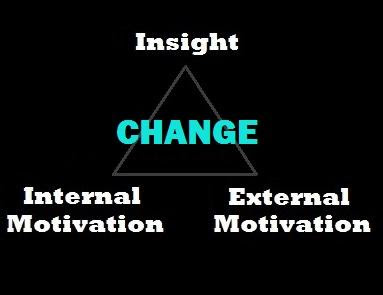Life does not owe anyone continuous stimulation, excitement, or entertainment. “I’m bored” has become a phrase that is often over-emphasized as an exaggerated catastrophe, kind of like someone saying that they have been diagnosed with a disease, or they just broke their leg or found out their wallet was stolen. In reality, at its worst, boredom is just uncomfortable. Yet it is hardly a tragedy or crisis to be bored every now and then. Rather than look at boredom as a malady, emergency, or a stroke of misfortune, why not embrace the challenge of boredom? Boredom does not need to be unpleasant. This idea of embracing boredom may seem outlandish at first but when thinking deeper about it, boredom often means that there is time available. Time is actually a resource so having open time can be viewed as a strength. Therefore, rather than experiencing “having nothing to do” as a weakness, embracing boredom requires accepting the challenge to fill this open time with something positive.
In essence,
the “cure” to boredom is finding something interesting to do with the open time
allotted. “There’s nothing to do” is a fallacy that needs to be reframed by the
bored mind. There is always something to do. So, saying to
oneself “I need to find something to do” is a much more strength-based
perspective to conquer temporary states of boredom. What we find for ourselves to do may not feel
interesting at first. This is because quite often, for something to become
interesting, this first takes patience and persistence. Often, interest is an
“acquired taste” so to speak
Consider an
analogy:
If someone were to say “I’m hungry but there’s nothing to eat” – then
the obvious cure would be to get something to eat. However, if this person were
trapped at home and unable to go out to get something to eat, then one solution
would be to go through the cabinets and find a clever way to whip up a new dish
to try to alleviate the hunger. In this case “picky eaters” may need to expand
their tastes and try new things or new combinations of old things cooked up or
prepared in a new way, possibly with new spices or sauces. People often learn
to like these new dishes that arise through experimentation and trial and
error.
Boredom
follows the same course. If it feels like there is “nothing to do” and “nowhere to go” then
attacking this situation by trying to experiment with new ideas or combinations
of old ones can fill that feeling of boredom the same way the hungry person
stuck at home resolved their hunger. The same principle of experimentation, trial,
and error as well as “spicing up” old ideas with new perspectives and ideas can
be the resounding answer to the boredom question.
The truth
is that “boredom happens” to the best of us and it can be expected in a
situation involving substance use or mental health recovery. However successful people learn to
master these moments of boredom rather than falling victim to them -
When handled correctly, boredom does not need to be a trigger or
a barrier or even something to fear. Rather, when we embrace the challenge of
boredom then boredom can instead be:
An opportunity
A motivator
A pathway to (healthy) curiosity and
creativity
A serendipitous encounter with new ideas
A fortuitous chance to try new things and
develop new interests
The doorway to expanding our mind, our
knowledge, our experience and our perspective
Discussion Questions:
Consider
some of the following ways to grind through boredom (even if it is not easy at
first)
1. People – Ex “I
was bored so I finally called that person who gave me their number at the AA
meeting and over time we became good friends”
2. Places – “I got
so bored I went to the library for the first time since I was a kid and at
first it was awkward now, I love going there”
3. Creativity – “Instead
of mindlessly surfing the internet, now I create my own content as I have a
blog and record videos about my experiences with mental health and addiction”
4. Learning – “I used
to complain all the time how bored I was then I started using YouTube videos to
learn how to play guitar and also to learn how to speak French which I now
practice weekly”
5. Simple ideas - “I got
so bored that I put a coat on opened the front door and just started walking.
Now I love walking and I make sure to do it every day”
6. Outside the
box – “I used
to make fun of people who knit and now I have a list of people waiting for me
to make them a scarf or hat”
7. Persistence – “In the
past every time I tried reading, I got frustrated and gave up but it but
eventually I caught the fever for reading and I finish a book a week and love
it”
8. Other? – What
else can you think of as a strategy to use boredom to your advantage?










